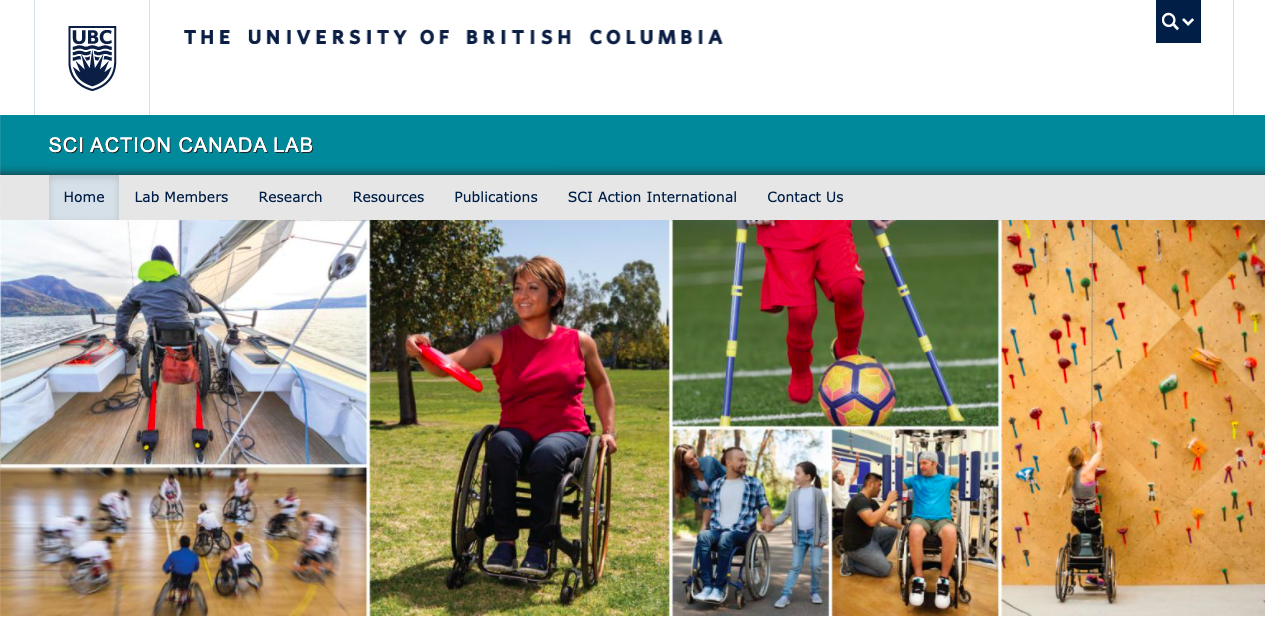June 8, 2020

It’s been a strange Spring.
Only a few days after ICORD’s Annual Research Meeting took place, all but the most urgent academic and research activities at UBC were curtailed. Now, with Summer around the corner, we are just starting to plan for a phased resumption of some research activities (although not those involving human participants – yet!).
This socially-distant issue of the ICORDian might be a little different than what you’re used to, but we hope you’ll still find these stories interesting:
- ICORD researchers collaborate on COVID-19 study
- PARC goes virtual – how PARC staff are facilitating remote participation
- Our last normal day – a look back at our Annual Research Meeting
- Cannabinoids for SCI pain and spasticity – research from the Krassioukov lab
- The value of volunteering – former Community Resource Centre volunteers discuss their experiences
- What’s new at ICORD-O – updates from ICORDians at UBC-O
- Help us do research – ICORD studies currently recruiting
- News from our partners – what’s new at SCI BC, RHF, Reach BC, and Praxis


ICORD researchers are collaborating with Dr. Myp Sekhon of VGH to study inflammatory markers of cytokine storm in individuals with COVID-19 admitted to the ICU. Principal Investigators Drs. Cheryl Wellington and Chris West, along with postdoctoral fellows Dr. Alex Williams (West Lab), and Dr. Ryan Hoiland (West and Sekhon labs), are working with Dr. Sekhon on this project.
Using a machine known as a Simoa HD-1 analyzer in Dr. Wellington’s lab at UBC, blood samples that normally take weeks to analyze are processed within 24 hours so ICU physicians have more time to observe a patient’s immune system. Dr. Wellington’s lab is the go-to lab in Canada for blood biomarker information using this type of technology.
Dr. Williams, whose research in Dr. West’s lab at ICORD focuses on cardiovascular consequences of SCI, is assessing cardiac outcomes of patients admitted to the ICU with COVID-19. “Linking the cardiac impact of COVID-19 with inflammatory biomarkers might shed light on approaches to minimize inflammatory status and mitigate cardiovascular dysfunction or circulatory failure in those patients,” explained Dr. Williams.
Although this work is not directly related to spinal cord injury, it has the potential to help people with SCI in the future. “The work is all conducted in the intensive care unit at VGH,” said Dr. Hoiland. “Since so little is known about the disease thus far, we are really trying to tease out the fundamentals, which will then be important for later defining its pathophysiology within sub-populations of patients, including people with SCI.”
Want to know more?
Click here to read the VCH press release about this project, and watch the video below. This study is funded in part by donations to the VGH and UBC Hospital Foundation.
|


In mid-March, the Yuel Family Physical Activity Research Centre at ICORD was forced to close its doors to the approximately 150 participants a week who normally visit for individual exercise, personal training, classes, and friendly companionship. However, PARC didn’t stay “closed” for long.
Five PARC student supervisors have been actively participating in the Get in Motion program (more on this in the ICORD-O update below), and have been providing physical activity counselling by phone. Personal training is available remotely, using Zoom (check out the great article about the personal training program in The Spin magazine – see page 27 of the PDF). And there are free online fitness classes happening every day. These classes are taught by PARC students, and supervised by the PARC Manager, Milly Zaletelj. They’re open to anyone in the world who wants to take them. Classes are designed to be done seated, but some exercise modifications are provided for non-wheelchair users. Videos of the live classes will soon be available as well.
The PARC team has thoughtfully curated a great resource for participants who aren’t able to follow their regular exercise routine thanks to COVID-19. Check out Virtual PARC for all the details (and the schedule for the free classes).
A special note to all the PARC participants who are reading this issue of the ICORDian: we know how important PARC is to so many of you, and we understand how much this shutdown is affecting you. We want to open as soon as we can, but there are several significant approval processes to get through first. In the meantime, we appreciate your patience, and admire your willingness to participate in our virtual situation for this long. Milly and her team at PARC are looking forward to seeing you again as soon as possible. “I can’t wait to see what great shape all our participants are in when we are finally able to get together again,” she said.
 |
|
Virtual PARC includes a series of short exercise videos created by Work Learn student Michael Cong that you can do in your home using everyday items as props.
|


On March 10 and 11, ICORD researchers, staff, and students got together for what would turn out to be our last group activity before Provincial Health Officer Dr. Bonnie Henry banned all gatherings of more than 50 people. The annual research meeting is a chance for all ICORD researchers to present their research and get feedback, socialize with each other, and hear from international experts in SCI. This year’s visiting plenary speaker was Swiss urologist Dr. Thomas Kessler, who is head of the Department of Neuro-Urology at Balgrist University Hospital, University of Zürich. In addition to Dr. Kessler’s lecture, “Management of neurogenic lower urinary tract dysfunction in patients with spinal cord injury,” meeting participants heard 14 talks by ICORD PIs and senior staff, and saw 56 research posters presented by trainees and staff.
Our annual research meeting is supported with funds from the Rick Hansen Foundation. We are very grateful for their continued generous support.
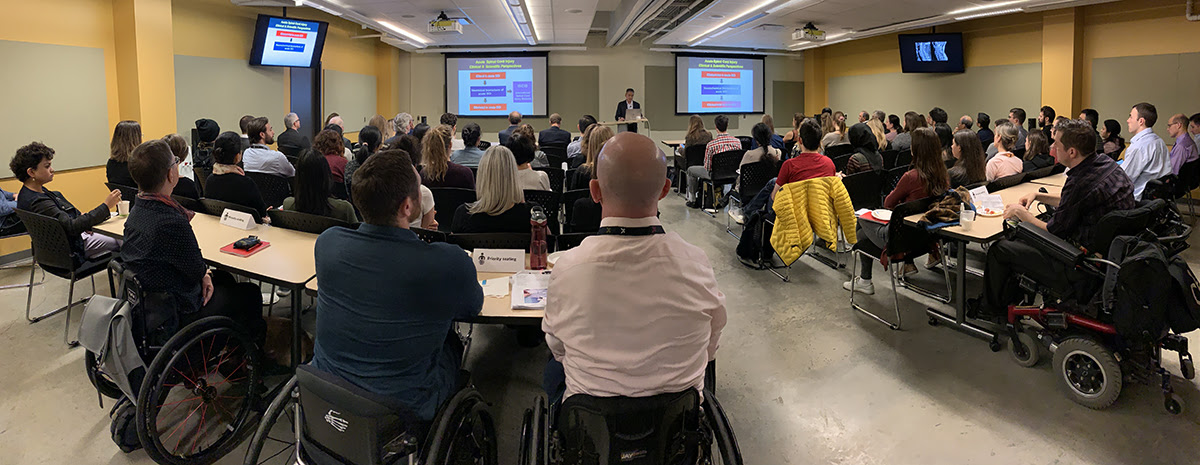
Meeting participants listen to a talk by Dr. Brian Kwon on March 11
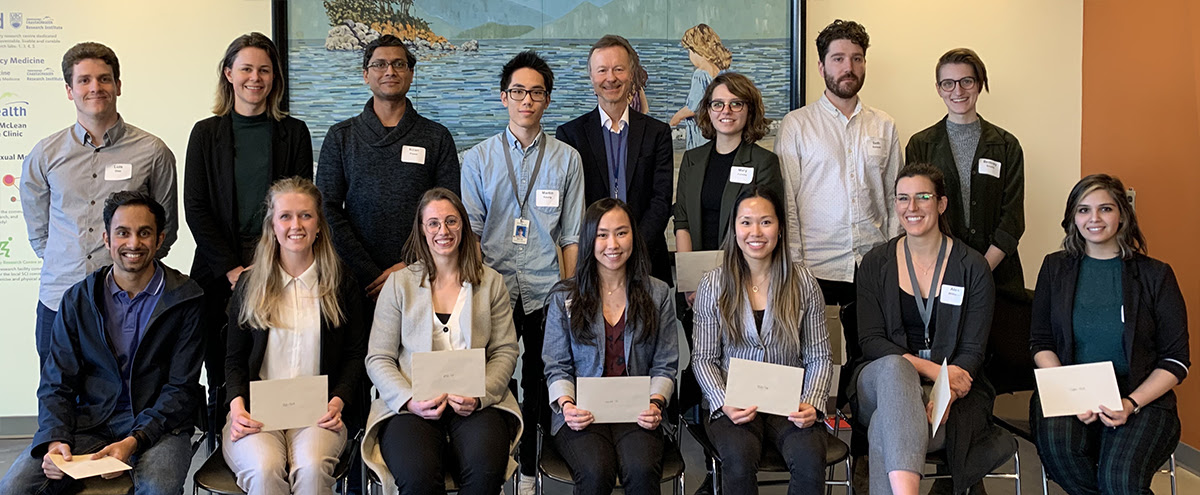 2020 Trainee and staff poster prize winners
2020 Trainee and staff poster prize winners

By Jocelyn Chan
Are you wondering about cannabis as a possible therapy for a wide range of conditions, including those that affect people with SCI? There is growing recognition for the medical potential of cannabis. Given the limitations of prescription medications currently used to treat pain and spasticity, ICORD PI Dr. Andrei Krassioukov and his research team have been investigating the treatment efficacy and safety of cannabinoid use in people with SCI.
Dr. Krassioukov and his team recently published a systematic review analyzing 34 studies from thousands of screened research studies related to SCI and cannabinoid use. Not surprisingly, they found that the most common usage method was 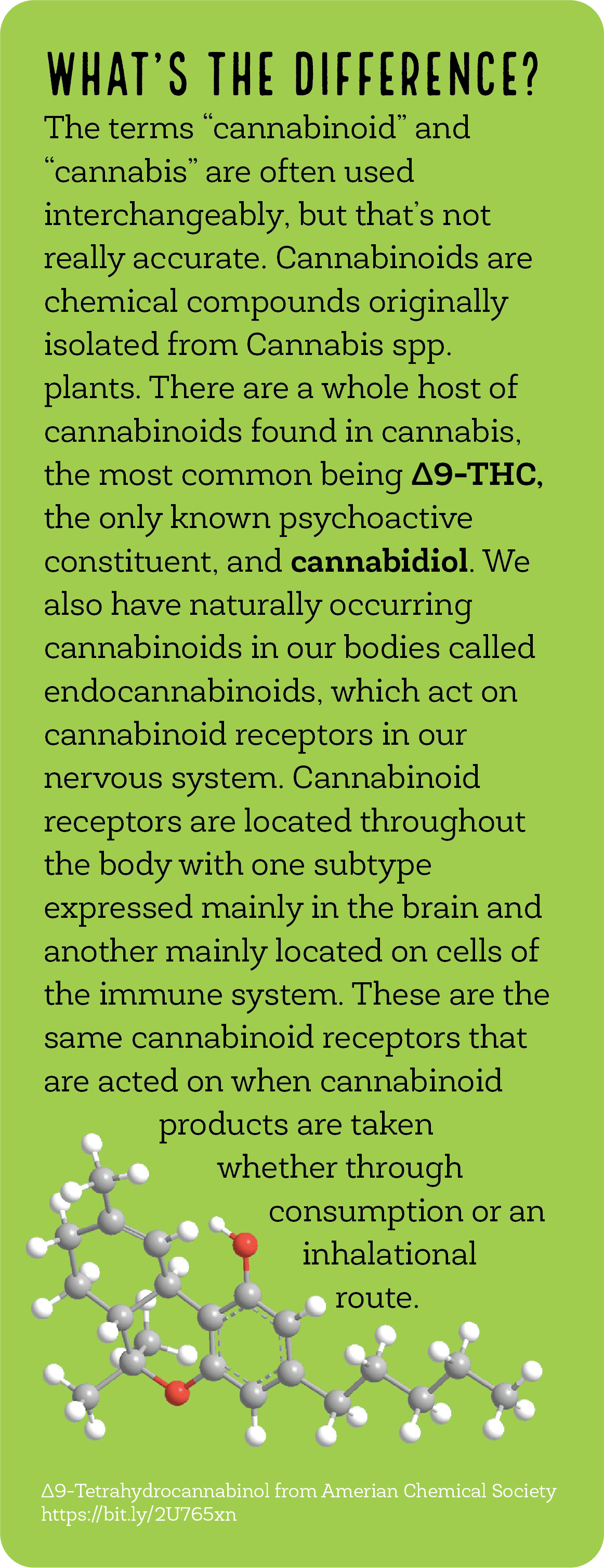 smoking, and the most common reasons for use were for relief of pain, spasticity and pleasure. So just how effective is cannabis at reducing pain and spasticity?
smoking, and the most common reasons for use were for relief of pain, spasticity and pleasure. So just how effective is cannabis at reducing pain and spasticity?
In 80% and 90% of studies analyzed, a statistically significant reduction of pain and spasticity, respectively, was observed. However, a fuzzier picture was painted when just examining randomized control trials (RCTs), which are often considered the gold standard for experimental designs when testing clinical treatments. When inspecting RCTs alone, effect sizes for pain and spasticity ranged from negative to positive numbers meaning that the size of the difference between the group that received cannabinoids and the group that received a standard treatment was highly variable amongst studies.
While this systematic review shows that current evidence suggests cannabinoids may reduce spasticity and pain in people with SCI, the clinical significance and effect magnitude is unclear. RCTs assessing a wider range of outcomes need to be conducted to better understand the effects of cannabinoid use in people with SCI and to fill in the gaps in existing knowledge such as optimal dosage and composition and concentration of compounds.
It’s important to note that cannabinoid use was associated with cognitive deficits and fatigue. More research and evidence on the effect of cannabis and various products on the health of Canadians is needed. Although people with SCI may benefit from cannabinoid use as with any medical agent, cannabis has side effects and should be used with caution with the guidance of a healthcare provider.
Another paper on the topic of cannabis is also out! Click here to read “Using cannabis to control blood pressure following spinal cord injury: a case report” published in Annals of Internal Medicine.


By Rona Herzog
Volunteers at ICORD’s Community Resource Centre in the atrium of the Blusson Spinal Cord Centre are often the first people that visitors to the building encounter. They answer questions about ICORD research studies, provide resources and articles, direct clinic and X-ray patients to the second floor, and help with general wayfinding (which is pretty important – the VGH campus can be quite confusing!). The Resource Centre would not be able to function without the enthusiasm and commitment of our volunteers, and we are extremely grateful to the 100+ volunteers who have chosen to spend their time with us over the years.
Resource Centre volunteers are mostly UBC students who are looking for experience outside of their lecture halls. Some volunteers are excited about the cutting-edge research being done by ICORD researchers, and others are interested in developing practical skills, like learning how to understand, disseminate and translate scientific research papers, making them more accessible to the general public. Some want to improve their interpersonal communication skills, and some want to gain a better understanding the diversity of the community surrounding ICORD and the BSCC.
Is being a resource centre volunteer worth the two hours a week commitment? We asked some former volunteers for their thoughts.
 Ivjot Samra volunteered at the Resource Centre in 2018 and 2019, while he was in his first two years of his BSc at UBC. He is now heading into his fourth year at UBC with a combined major in Chemistry, Life Sciences, and Earth and Environmental Sciences, and is currently a Work Learn research assistant for the Department of Emergency Medicine. Volunteering at the Resource Centre kick-started Ivjot’s interest in scientific research and gave him the opportunity to develop his science communication skills. The ability to communicate scientific concepts in a clear and straightforward way is a skill which has proven to be invaluable in his studies and at work as a research assistant. During his weekly shifts at the Resource Centre, Ivjot would usually see Mike Skelton doing laps of the atrium ramp in his wheelchair. Mike’s unwavering dedication to maintaining physical fitness has really inspired Ivjot to stick with his own goals. Ivjot’s advice for students thinking about volunteering at the Resource Centre? “Take time to explore several volunteer opportunities in diverse settings as this can help you determine where your interests lie and build motivation to pursue a path that resonates with those interests. Regardless of how your volunteer experiences turn out to be, it is inevitable that you will learn something at the end.”
Ivjot Samra volunteered at the Resource Centre in 2018 and 2019, while he was in his first two years of his BSc at UBC. He is now heading into his fourth year at UBC with a combined major in Chemistry, Life Sciences, and Earth and Environmental Sciences, and is currently a Work Learn research assistant for the Department of Emergency Medicine. Volunteering at the Resource Centre kick-started Ivjot’s interest in scientific research and gave him the opportunity to develop his science communication skills. The ability to communicate scientific concepts in a clear and straightforward way is a skill which has proven to be invaluable in his studies and at work as a research assistant. During his weekly shifts at the Resource Centre, Ivjot would usually see Mike Skelton doing laps of the atrium ramp in his wheelchair. Mike’s unwavering dedication to maintaining physical fitness has really inspired Ivjot to stick with his own goals. Ivjot’s advice for students thinking about volunteering at the Resource Centre? “Take time to explore several volunteer opportunities in diverse settings as this can help you determine where your interests lie and build motivation to pursue a path that resonates with those interests. Regardless of how your volunteer experiences turn out to be, it is inevitable that you will learn something at the end.”
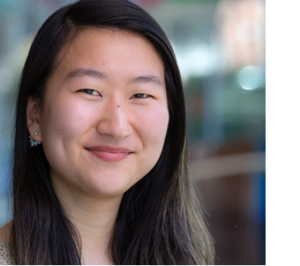 Lisa Liu began volunteering at the Resource Centre in 2011 while she was still a high school student, and stayed with us until 2016, when she was partway through a Biology undergrad at UBC. Lisa has now completed her Master of Public Health from UBC, and is working full-time as a research assistant with Dr. Jacquelyn Cragg. “I was a pretty shy kid when I first started volunteering,” said Lisa. “But over the years, my ability to communicate with people from all kinds of backgrounds really improved.” Lisa noticed that visitors at the Resource Centre were often people with SCI, but also a lot of family members and friends of people with SCI who were interested in asking questions and sharing their own stories. This was Lisa’s first exposure to the importance of sharing lived experiences. Lisa’s advice for students interested in volunteering is to be open to fields in which you’re not necessarily immediately interested. “Volunteering is a great way to learn what you like, but also a fantastic way to figure out what you don’t like, while still giving back in some way. If it turns out you like the experience, great! If you don’t, it will also help you narrow down what you might want to do in the future”.
Lisa Liu began volunteering at the Resource Centre in 2011 while she was still a high school student, and stayed with us until 2016, when she was partway through a Biology undergrad at UBC. Lisa has now completed her Master of Public Health from UBC, and is working full-time as a research assistant with Dr. Jacquelyn Cragg. “I was a pretty shy kid when I first started volunteering,” said Lisa. “But over the years, my ability to communicate with people from all kinds of backgrounds really improved.” Lisa noticed that visitors at the Resource Centre were often people with SCI, but also a lot of family members and friends of people with SCI who were interested in asking questions and sharing their own stories. This was Lisa’s first exposure to the importance of sharing lived experiences. Lisa’s advice for students interested in volunteering is to be open to fields in which you’re not necessarily immediately interested. “Volunteering is a great way to learn what you like, but also a fantastic way to figure out what you don’t like, while still giving back in some way. If it turns out you like the experience, great! If you don’t, it will also help you narrow down what you might want to do in the future”.
 Andre Fallavollita volunteered at the Resource Centre from 2011 to 2012 (that’s him in the photo at the top of this article!). The next year he took the job of Resource Centre Coordinator, and also worked part time in Dr. Krassioukov’s lab as a research assistant. At the time, Andre was studying Microbiology and Immunology at UBC. He now has his medical degree and is in the second year of his Radiology residency at the University of South Alabama. Andre saw the Resource Centre as an important communication link between researchers and the community. “By asking members of the SCI community what they thought was important and needed to be done, and following up by asking clinicians and scientists what they were doing to address the concerns of the SCI community, the Resource Centre was able to act as a bridge: sharing knowledge in-person at the desk, via lay summaries on our blog, and by hosting events like Cafés Scientifique and lunch & learn seminars,” he explained. As someone who’s been through medical school himself, Andre’s advice for students with aspirations of getting into medicine is to make sure they’re not volunteering just for the sake of adding appropriate volunteer experience to their CVs. “My advice would be to get involved if you volunteer. Don’t just do it to add a few lines to your CV. I’m proud that I was able to really invest my time and myself in ICORD while I was a volunteer, RC coordinator, and as a lab technician.”
Andre Fallavollita volunteered at the Resource Centre from 2011 to 2012 (that’s him in the photo at the top of this article!). The next year he took the job of Resource Centre Coordinator, and also worked part time in Dr. Krassioukov’s lab as a research assistant. At the time, Andre was studying Microbiology and Immunology at UBC. He now has his medical degree and is in the second year of his Radiology residency at the University of South Alabama. Andre saw the Resource Centre as an important communication link between researchers and the community. “By asking members of the SCI community what they thought was important and needed to be done, and following up by asking clinicians and scientists what they were doing to address the concerns of the SCI community, the Resource Centre was able to act as a bridge: sharing knowledge in-person at the desk, via lay summaries on our blog, and by hosting events like Cafés Scientifique and lunch & learn seminars,” he explained. As someone who’s been through medical school himself, Andre’s advice for students with aspirations of getting into medicine is to make sure they’re not volunteering just for the sake of adding appropriate volunteer experience to their CVs. “My advice would be to get involved if you volunteer. Don’t just do it to add a few lines to your CV. I’m proud that I was able to really invest my time and myself in ICORD while I was a volunteer, RC coordinator, and as a lab technician.”
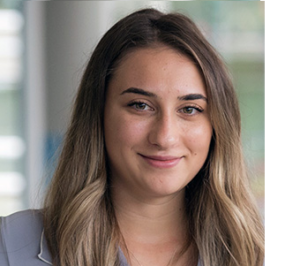 Mia Oproescu began volunteering at the Resource Centre as UBC Integrated Science undergrad in 2016, and almost immediately she immersed herself in ICORD as much as she could. In addition to being promoted to Resource Centre Coordinator in 2017 (a position she held until 2019), she volunteered in the lab of Dr. Matt Ramer, and she was elected to the ICORD Trainee Committee as Community Outreach Coordinator. Mia is currently pursuing a Master of Science degree at the University of Toronto. Mia’s time with the Resource Centre helped her appreciate the meaning and importance of accessibility. “At the Resource Centre, we openly communicated with people who had different experiences and, in this way, learned how we could improve accessibility to both scientific/medical knowledge and physical spaces,” she said. Mia spent an enormous amount of time helping Resource Centre volunteers plan and write lay summaries of scientific papers to help make ICORD research more accessible to non-scientists. She was especially proud of volunteers who would take the initiative to work on special projects over and above their regular Resource Centre duties. One moment that stands out for her was the time one of the senior volunteers, Mohammad, decided to shoot and edit a volunteer recruitment video for the Resource Centre. She drove to ICORD at 5am to let him into the building because Mohammad was so excited to shoot a time lapse of the sunrise in the atrium (his video turned out to be awesome). Volunteering and working at the Resource Centre helped fuel Mia’s desire to continue working on scientific knowledge translation. Most recently she has worked as a content developer for the 2020 StemCellTalks symposium in Toronto. Mia’s advice for students interested in volunteering is to “find a cause that you align with and look for opportunities within that space. You’ll make the biggest difference when you apply yourself to something that holds meaning to you.”
Mia Oproescu began volunteering at the Resource Centre as UBC Integrated Science undergrad in 2016, and almost immediately she immersed herself in ICORD as much as she could. In addition to being promoted to Resource Centre Coordinator in 2017 (a position she held until 2019), she volunteered in the lab of Dr. Matt Ramer, and she was elected to the ICORD Trainee Committee as Community Outreach Coordinator. Mia is currently pursuing a Master of Science degree at the University of Toronto. Mia’s time with the Resource Centre helped her appreciate the meaning and importance of accessibility. “At the Resource Centre, we openly communicated with people who had different experiences and, in this way, learned how we could improve accessibility to both scientific/medical knowledge and physical spaces,” she said. Mia spent an enormous amount of time helping Resource Centre volunteers plan and write lay summaries of scientific papers to help make ICORD research more accessible to non-scientists. She was especially proud of volunteers who would take the initiative to work on special projects over and above their regular Resource Centre duties. One moment that stands out for her was the time one of the senior volunteers, Mohammad, decided to shoot and edit a volunteer recruitment video for the Resource Centre. She drove to ICORD at 5am to let him into the building because Mohammad was so excited to shoot a time lapse of the sunrise in the atrium (his video turned out to be awesome). Volunteering and working at the Resource Centre helped fuel Mia’s desire to continue working on scientific knowledge translation. Most recently she has worked as a content developer for the 2020 StemCellTalks symposium in Toronto. Mia’s advice for students interested in volunteering is to “find a cause that you align with and look for opportunities within that space. You’ll make the biggest difference when you apply yourself to something that holds meaning to you.”
Click here to learn about volunteering at the Resource Centre.


By Femke Hoekstra
The EPIC-SCI Trial
ICORD-O PI Kathleen Martin Ginis’s lab in collaboration with members from Chris West’s lab and John Kramer’s lab are conducting a study on the effects of exercise on health and well-being among adults with spinal cord injury who live with chronic pain. The team recently published their protocol paper in Spinal Cord. [Please note: recruitment of new participants is currently suspended due to COVID-19.]
Get in Motion
ICORD-O trainees in Kathleen Martin Ginis’s and Heather Gainforth’s labs are offering free virtual physical activity support to people with disabilities during the COVID-19 pandemic. The program, called Get in Motion, is initiated by Kathleen Martin Ginis and her colleagues from Queen’s University, Amy Latimer-Cheung and Jennifer Tomasone, to support Canadians with disabilities during the COVID-19 crisis. Click here for more information or to enroll in the program.
A new website
The SCI Action Canada lab, led by Kathleen Martin Ginis, has a new website! The website includes information about the research projects, lab members, as well as a variety of evidence-based resources for people with spinal cord injury. Check out the new website here.


Interested in helping ICORD researchers make SCI preventable, livable, and curable? These research studies are in need of participants!
Canadians’ Occupations during Viral Infection Days (COVID): A new normal?
ICORD researchers Drs Borisoff, Miller and Mortenson are hoping to gain an understanding of the changes in daily and social activities for Canadians with the advent of COVID-19 and how people are adjusting to these changes. Participation in this study involves completing online questionnaires and a remote interview once per month until the restrictions related to COVID-19 are lifted.
Burden of intermittent catheterization
Researchers in Dr. Andrei Krassioukov’s lab are interested in exploring the effect of intermittent catheterization in the health of individuals with SCI, specifically in regards to the presence of urinary tract infections (UTIs) and episodes of autonomic dysreflexia (AD). The primary purpose of this part of the study will be looking at the impact of re-using catheters of intermittent catheterization on the rate of UTIs and urinary bacterial levels. For the study, participants (or aided by a caregiver/family member/partner) will use intermittent catheterization and a swab for bacteria over a 3 day period.
 Supporting Snowsports Leisure Opportunities for PEople with disabilities (SSLOPE)
Supporting Snowsports Leisure Opportunities for PEople with disabilities (SSLOPE)
ICORD researcher Dr. William C. Miller, and his research team at UBC, are calling on all past participants of adaptive snow sports programs. If you have previously participated in adaptive snow sports programs, but no longer do, we invite you to participate in this research study to learn more about your experiences. The purpose of this study is to better understand the quality of participation for people living with disabilities engaged in adaptive snow sports, including those offered by the British Columbia Adaptive Snowsports (BCAS). Your participation in this study would include one over-the-phone interview that will take approximately 45 minutes.
Developing web-based counselling services for family caregivers
ICORD researcher Ben Mortenson and his team are currently recruiting family caregivers of people with disabilities (including SCI) residing in BC to take part in a user-centred design process to develop a website prototype for counselling services. For the purposes of this study, family caregivers refers to anyone who is providing unpaid care for family members and/or friends. Participation in this study will involve one to three recorded interviews. Participants may attend one, two, or all three interviews as convenient.
 Intersectional assistive technology
Intersectional assistive technology
Researchers in Dr. Ben Mortenson’s lab are interested in the experiences of people with mobility or physical disability (including SCI) obtaining and using assistive technology (AT), which is any tool that helps with activities of daily living such as wheelchairs, canes, crutches, mobile apps, etc. As Canada’s population ages, increasing numbers of Canadians will have disabilities that may reduce their well-being and limit their active engagement in life. Very little research has explored users’ AT-related experiences, including access to and use of AT among minority groups. The purpose of the study is to learn more about how to help people, who have a mobility or physical disability, access and use AT. Participation in this study involves completion of a survey (online, via phone, or via mail), as well as an online or phone interview and photovoice project.
Click here to browse all the ICORD studies currently recruiting participants.

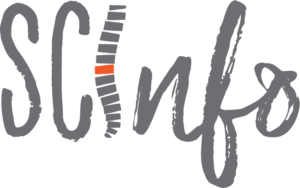 Did you know that volunteers at our SCI Community Resource Centre prepare summaries of scientific papers and post them on our SCInfo blog? If you’re interested in what’s going on in SCI research around the world, this is a good place to look.
Did you know that volunteers at our SCI Community Resource Centre prepare summaries of scientific papers and post them on our SCInfo blog? If you’re interested in what’s going on in SCI research around the world, this is a good place to look.


 SCI BC has lots of virtual activities going on
SCI BC has lots of virtual activities going on
SCI BC is continuing to suspend all services that take place in public spaces through to the end of June. However, we have a ton of virtual events taking place, including fitness classes, Netflix watch parties, arts and crafts sessions, book clubs, and friendly social events. Click here for all the details.
RHF offers online resources for the pandemic
 People with disabilities face additional barriers when it comes to the COVID-19 pandemic, such as fewer support workers, a lack of financial aid, barriers to social distancing, and an increased risk of contracting the virus and developing severe cases. The Rick Hansen Foundation has developed a list of much needed resources that you may find helpful during this time. Read more here.
People with disabilities face additional barriers when it comes to the COVID-19 pandemic, such as fewer support workers, a lack of financial aid, barriers to social distancing, and an increased risk of contracting the virus and developing severe cases. The Rick Hansen Foundation has developed a list of much needed resources that you may find helpful during this time. Read more here.
Reach BC connects researchers and community
REACH BC is a new online platform that connects British Columbians to health research opportunities ba sed on their health interests, including studies by ICORD researchers.
sed on their health interests, including studies by ICORD researchers.
How does it work? Patients and members of the public can connect in 3 simple steps:
- Create a REACH BC profile with your health research interests.
- Get matched and notified by e-mail with research opportunities.
- Review and decide if you want to connect with the research team.
A new spinal cord research project, Thoughts on Nerve Transfer Surgery, by ICORD researcher, Dr. Michael Berger, is now available on REACH BC. Learn more about this opportunity here.
Award recipients for Cure and Care Program announced
These projects on Activity-Based Therapy (ABT) Evidence + Implementation and Localized Network Development + Enhancement are expected to provide meaningful  contributions to the SCI community in terms of innovative and transformative solutions. We look forward to the development of these projects and their success in the coming year. Congratulations to all the grant recipients!
contributions to the SCI community in terms of innovative and transformative solutions. We look forward to the development of these projects and their success in the coming year. Congratulations to all the grant recipients!
Read the Growth Stories of the SCI Accelerate Cohort Companies
Learn more about the five companies in the Praxis SCI Accelerate 2020 program. These healthcare companies are turning their innovations into products ready to launch into market that will transform the lives of people living with SCI.


Thanks for reading this issue of The ICORDian – we hope you enjoyed it! Please subscribe and have future issues delivered to your inbox. If you have any comments about this issue or suggestions for future ones, please contact us.





